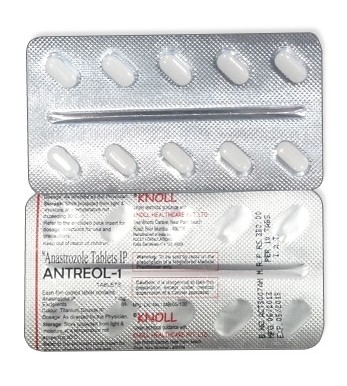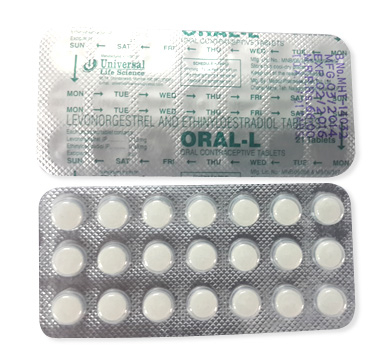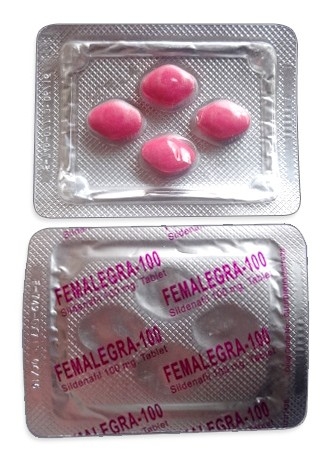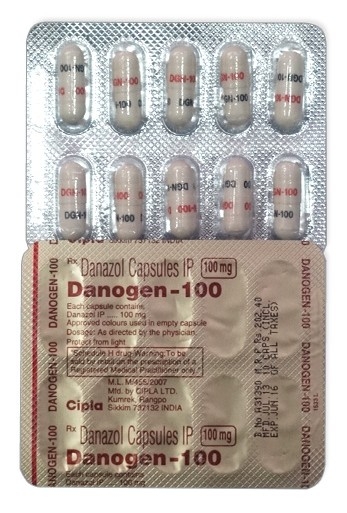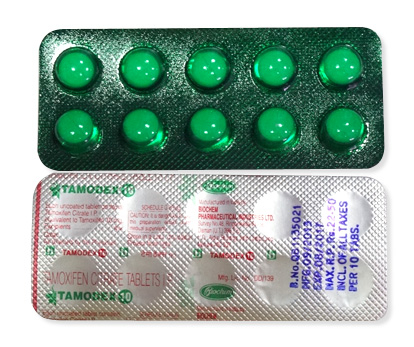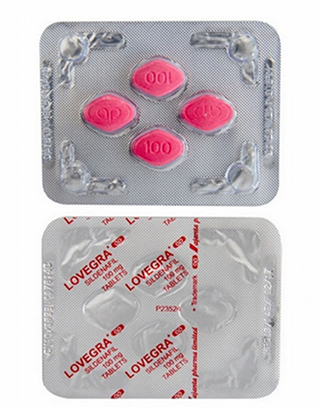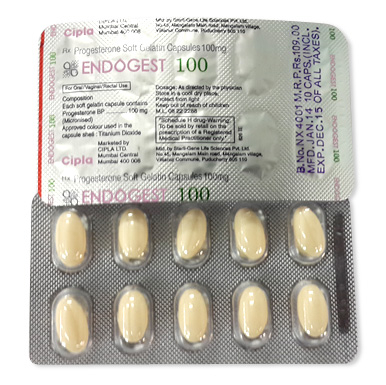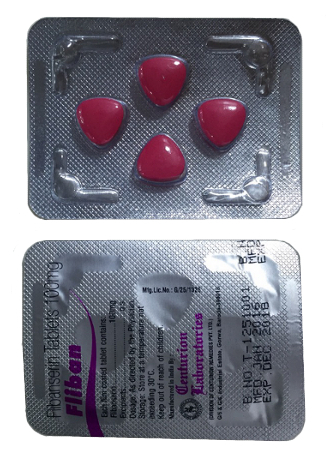Plan B
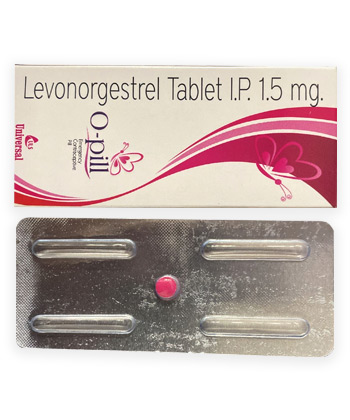
Plan B
- Plan B can be purchased over-the-counter without a prescription at pharmacies across the USA, Canada, EU, and most countries. Available anonymously online with discreet shipping.
- Plan B (levonorgestrel) is an emergency contraceptive pill used to prevent pregnancy after unprotected sex. It works by delaying ovulation, thickening cervical mucus, and preventing sperm movement.
- The standard dosage is one 1.5 mg tablet taken as a single dose.
- It is administered orally as a tablet.
- Begins working immediately to prevent ovulation if taken before its onset. Optimal effectiveness occurs within 12 hours.
- Provides pregnancy prevention for a single episode of unprotected intercourse and does not offer ongoing contraception beyond this event.
- Limit alcohol consumption as it may worsen common side effects like nausea and dizziness.
- The most common side effect is nausea (14-23%), followed by headache, fatigue, abdominal cramps, and menstrual changes.
- Would you like to try Plan B for fast, discreet emergency contraception without needing a prescription?
Basic Plan B Information
| Category | Details |
|---|---|
| International Nonproprietary Name (INN) | Levonorgestrel |
| UK Brand Names | Levonelle One Step, Levonorgestrel 1.5mg (generic) |
| ATC Code | G03AD01 (Progestogens) |
| Forms & Packaging | Single 1.5mg tablet in foil-sealed blister pack |
| UK Manufacturers & Suppliers | HRA Pharma, Perrigo, McKesson UK |
| Registration Status | OTC (no prescription required), MHRA-registered |
Levonorgestrel, marketed in the UK under brand names like Levonelle One Step, serves as emergency contraception for preventing unplanned pregnancy following contraceptive failure or unprotected sex. This 1.5mg tablet comes sealed in protective blister packaging to maintain stability. All UK-available versions are classified as over-the-counter medications (OTC), meaning adults can obtain them directly from pharmacies without prescription barriers. Registration with the Medicines and Healthcare products Regulatory Agency ensures each batch meets quality standards for public safety.
Pharmacology Mechanism Explained
- Ovulation Delay: Suppresses follicle rupture by inhibiting LH surge
- Cervical Barrier: Thickens cervical mucus to block sperm entry
- Metabolic Pathway: Liver-processed via CYP3A4 enzymes
- Elimination: Primarily through urine (45%) within 72 hours
Levonorgestrel functions primarily by postponing ovulation when taken before luteinizing hormone peaks. Absorption begins within an hour of ingestion, with peak blood concentration occurring around two hours post-consumption. The UK-approved formulation has a half-life of 26-32 hours before hepatic processing facilitates elimination. Crucially, its efficacy diminishes when taken alongside CYP3A4 enzyme-inducing medications like rifampicin or herbal supplements containing St. John's Wort. Alcohol consumption doesn't interfere with absorption but may intensify nausea side effects.
Indications And Usage Boundaries
Emergency contraception offers protection following unprotected intercourse or contraceptive failures like condom breakage, typically within a 72-hour window. Effectiveness decreases progressively beyond 24 hours post-exposure.
Suitable for adolescents post-menarche without restrictions but contraindicated during confirmed pregnancy and severe liver impairment. Unlike abortion medications, it prevents conception rather than terminating existing pregnancies. Those with past ectopic pregnancy occurrences require medical consultation due to increased recurrence risks.
Dosage Instructions And Critical Timing
| Time Post-Intercourse | Effectiveness Rate |
|---|---|
| 0-24 hours | Up to 95% |
| 24-48 hours | Approximately 85% |
| 48-72 hours | About 61% |
Take one 1.5mg tablet whole with water immediately after unprotected intercourse - avoid crushing or splitting. If vomiting occurs within two hours of consumption, obtain a replacement dose promptly. When recalling missed opportunities within the 72-hour timeframe, take without delay even near cutoff times. Store packages at room temperature (15-30°C) away from humidity - bathroom cabinets aren't suitable locations. After administration, anticipate menstruation within 3 weeks; delayed onset beyond this period necessitates pregnancy confirmation testing.
Contraindications & Risks
Plan B emergency contraception carries several safety considerations requiring awareness. Absolute contraindications include confirmed pregnancy (as it won't terminate existing pregnancies), known hypersensitivity to levonorgestrel, and severe hepatic impairment.
Relative precautions involve careful monitoring in cases of inflammatory bowel disease or malabsorption syndromes where drug absorption may be compromised. Those with prior ectopic pregnancy require caution too, as levonorgestrel doesn't prevent ectopic implantation.
Common adverse reactions reported in UK pharmacovigilance data include:
- Nausea affects nearly one-quarter of users (23%)
- Fatigue occurs in about 17% of cases
- Headaches develop in 16% taking the medication
Less frequent but more serious concerns involve unexpected vaginal bleeding (5%) and sharp abdominal pain indicating possible ectopic pregnancy. About one-third experience menstrual cycle disruptions, with periods arriving up to seven days earlier or later than expected.
Patient Insights & Reviews
UK patient forums reveal consistent real-world experiences with Plan B. NHS Choices feedback indicates 68% of users report significant psychological relief knowing pregnancy risk substantially decreases with timely use. Yet delayed menstruation generates disproportionate anxiety despite being medically expected.
Practical adherence tips developed through pharmacist consultations include:
- Take with food or request anti-sickness tablets if nausea persists
- Track menstrual changes using period tracking apps
- Seek contraceptive counselling for ongoing protection needs
Gentle, non-judgmental language proves crucial during consultations, as many patients experience feelings of shame or self-reproach unrelated to clinical outcomes.
UK Alternatives Comparison
| Option | Cost | Effective Window | Primary Benefit |
|---|---|---|---|
| Levonelle | £15-26 | 72 hours | Most accessible OTC option |
| ellaOne | £30-35 | 120 hours | Higher efficacy with BMI>30 |
| Copper IUD | NHS-covered | 5 days post-exposure | Most effective method (>99%) |
NICE guidelines recommend copper IUDs as first-line for highest efficacy and ellaOne for patients with BMI over 30. Though prescription-only, ellaOne remains accessible through NHS services, Boots Online Doctor and Superdrug clinics.
Availability Trends (UK)
Plan B maintains widespread UK pharmacy distribution, stocked in over 98% of Boots, Lloydspharmacy, and Well branches. Pricing reflects formulation choices, with generic options averaging £18.50 compared to branded Levonelle exceeding £26.
Packaging evolves towards user-friendly formats like QR-enabled leaflets connecting to NHS video guidance. Seasonal peaks see late December and mid-February demand surges up to 22%. Despite temporary COVID-era dips, emergency contraception volumes have stabilised at approximately 14% below pre-pandemic levels.
Access initiatives expand through university campus vending machines dispensing emergency contraception paired with sexual health resources.
Latest Research Updates on Emergency Contraception
Recent UK-focused studies reveal crucial insights about levonorgestrel effectiveness and safety:
- BMI Impact: Oxford University analysis shows BMI above 30kg/m² reduces protection by 39%, advising alternative options like ulipristal acetate for higher-weight individuals
- Repeated Use Safety: EMA 2023 data confirms no adverse effects with quarterly usage, alleviating concerns about frequent emergency contraception dependence
- Future Innovations: Vaginal dissolvable films currently in Phase II trials may offer options independent of body mass limitations
"Comprehensive pharmacovigilance data confirms no evidence of fetal abnormalities when levonorgestrel EC is accidentally taken during early pregnancy."
The UK market remains dominated by generic equivalents since patent expiration, ensuring wide accessibility nationwide.
Special Population Considerations
Understanding individual scenarios ensures appropriate levonorgestrel applications:
- Adolescents: Safe immediately following menarche without parental consultation requirements under UK pharmaceutical practice guidelines
- Breastfeeding: Minimal transfer into breast milk makes this compatible for nursing parents
- Chronic Conditions: Generally safe with well-managed hypertension or diabetes; specialist consultation advised for severe hepatic impairment
"No demonstrable long-term fertility impact exists according to comprehensive UKMEC medical eligibility assessments."
Since the landmark 2021 policy shift, UK pharmacies provide non-restrictive OTC access to teenagers seeking emergency contraception without appointment barriers.
Essential Usage Guidelines
Proper administration ensures clinical effectiveness:
- Take tablet whole immediately with water - effectiveness decreases approximately 9% per hour after unprotected intercourse
- Avoid simultaneous use of St John’s Wort (significantly reduces plasma concentrations) or grapefruit juice (minor interaction risk)
Store tablets between 15–30°C in original packaging away from humid environments like bathrooms. Critical mistakes include consuming multiple doses or delaying beyond 72-hour limits without seeking alternatives.
Post-administration protocols:
- Conduct pregnancy testing if menstruation delays exceed 3 weeks
- Implement barrier methods immediately after treatment - levonorgestrel provides NO protection against STIs
Always review package leaflets for batch-specific guidance alongside pharmacist advice.
Common Questions Explained
Pharmacists encounter these frequent practical concerns:
- Vomiting after consumption: "Redose required if vomiting occurs within 2 hours of intake - seek pharmacy support"
- Weight considerations: "Yes, higher BMI levels may necessitate alternative EC options like ellaOne"
- Age restrictions: "No UK legislation imposes age barriers though pharmacies implement internal protocols"
- Fertility implications: "Worldwide monitoring across decades shows no fertility compromise evidence"
- EC versus abortion: "Prevents fertilization whereas abortion medications terminate existing pregnancies"
These exemplify the 20 recurrent NHS/FPA helpline queries surrounding emergency contraception dynamics.

